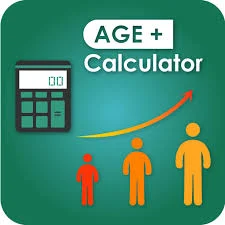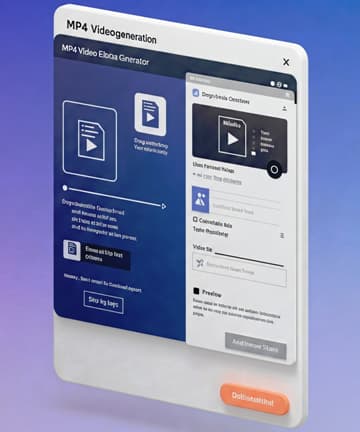Did you ever want to know how many seconds you lived? Not years or days, but the sheer number of heartbeats of time that you've existed on Earth?
We know how many years we exist. Some even figure it out in days for a special occasion. But seconds? That is where the magic happens.
What Is This Tool?
An age calculator tool does more than simple arithmetic. It calculates your precise age down to the second.
It's a time telescope, really. Your birth certificate may have years, but this app peels back the layers to show you the nitty-gritty of your life.
The app asks you for your birth date and time. Then it does all the math: years, months, weeks, days, hours, minutes, and seconds you've lived.
Some of the pricier ones even take leap years into consideration. They also take time zones into consideration. The good ones update in real time, incrementing a second to your age every second.
It's like looking at the odometer in your life.
How Do You Use It?
An age calculator is easy to use. No rocket science involved.
First, get yourself a good online age calculator. There are hundreds of them out there for free.
Input your birthday. Almost all calculators require month, day, and year. Some also require birth time.
Hit calculate. The calculator does the rest.
In a matter of seconds, you'll have your age in all sorts of formats. Years, days, hours, minutes, seconds – the entire chronicle of your existence.
There are calculators that tell you more. Such as what day of the week you were born. Or how many days until your birthday.
The math involved is known as date arithmetic. The machine subtracts your birthday from today. And converts the difference into different units of time.
Leap years make things slightly complicated. February 29th only comes about every fourth year (with a few exceptions). Good computers do this automatically.
Time zones are also included. If you were born in Tokyo but reside in New York, the actual time difference impacts your age in seconds.
Why It Matters
Age calculators are not just a novelty; they have numerous useful applications.
Legal documents frequently demand accurate age verification. Insurance companies utilize accurate ages in policy decisions. A few government entitlements rely on achieving exact age marks to the date.
Medical providers work with accurate ages in treatment plans. Pediatric services particularly rely on age expressed in weeks or even days of infancy.
It's a great deal simpler to organize events when you have accurate periods of time. Planning a 10,000-day birthday party? You'll want to know the exact date.
Athletes monitor training periods in days. You require your exact age to set optimum performance windows and recovery times.
The psychological effect is interesting too. Having your age in seconds puts things into perspective. One million seconds is 11.5 days. One billion seconds? That is 31.7 years.
It makes time seem infinite and valuable at the same time.
Who Can Use It?
Parents monitoring infant development find devices like this indispensable. Baby milestones are counted in weeks and months, not years.
Age splits must be accurate in the majority of research studies.
Researchers of genealogy creating family trees require accurate dates for historical purposes. Each day is significant in tracing history.
Human Resource professionals handling employment applications utilize age verification for compliance purposes. Age discrimination statutes necessitate accurate documentation.
Insurance agents setting premiums require accurate ages. Days can make a difference in policy rates.
Astrology true believers (don't worry, they're counted, too) employ accurate birth times for calculating charts. Minutes and seconds count in astrological computations.
Fitness trainers creating age-targeted training programs depend on accurate ages.
The Psychology of Exact Time
There's something intensely meaningful about looking at your age in seconds.
When you know you've lived more than 500 million seconds, time means something different to you. Every second counts all the more when you're able to look at the total count.
It's the distinction between knowing you're "about 30" and knowing you've lived through 946,684,800 seconds exactly.
That accuracy can be inspiring. Or overwhelming. Depending on your nature.
Some people find it liberating. Some find it debilitating. Both are understandable.
The secret is using this information constructively. Let it inspire better time management. Not paralyze you with fear of the meaning of life.
More Than Simple Math
Computers of today's age are more than calculators. Some tell your age on other worlds. Others make assumptions about your "biological age" based on lifestyle.
More sophisticated programs will provide you with facts about past events that occurred in your lifetime. Or what was hot in the world when you were born.
Others make it a game. They display achievements unlocked at various age milestones.
The information is now a party factoid. "Did you know I've been around 1.2 billion seconds?" It's strangely interesting.
Technical Considerations
All age calculators are not created equal. Some of them estimate with simplified 365-day years. Some accurately factor in leap years.
Time zones create incompatibilities. A calculator based on UTC may yield different results from an equivalent one based on your local time.
Daylight saving time adds a further complication. The day is 23 or 25 hours long rather than 24 every two months.
The best calculators account for all these nuances. They employ your actual birth place and your current place for accurate figures.
Making It Practical
Utilize age calculators in planning milestones. Desire to honor 10,000 days of being alive? Compute the date exactly.
Mark relationship anniversaries with pizzazz. "Happy 50 million seconds of wedded bliss!" is more evocative than "Happy 1.6 years."
Exempt personal challenges by time units. Run a mile for every million seconds you've lived. Read one book for every billion heartbeats.
As you start thinking outside the boundaries of conventional years, the options are infinite.
The Bottom Line
Age calculators make abstract time concrete numbers. They make the invisible visible.
Whether it is out of utilitarian interest or plain fascination, they give a unique perspective to the chronology of life.
Your age in seconds continues to increase. Every second adds to the number.






